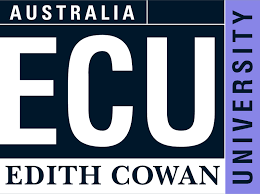
Bachelor of Engineering (Electrical Power) Honours


Overview
Duration
4 YEARS FULL-TIME
4 YEARS FULL-TIME
Scholarship
YES
YES
Fee
AUD $38,950
AUD $38,950
Intake
FEBRUARY , JULY
FEBRUARY , JULY
Overview
- Electrical power engineering is a well-established engineering discipline encompassing electrical power generation, transmission and distribution.
- The course provides broad coverage across a range of core electrical and electronic subjects, leading to more in-depth studies of power systems including generation, transmission and protection, as well as power electronics, electromechanical systems, industrial control, and renewable energy.
- The program focuses on the development of knowledge and skills relevant to professional engineering practice and along with a sound theoretical base, includes strong elements of practical problem solving, team work and project development. As a result, as well as having multiple technical and transferable skill competencies, graduates will gain strong analytical skills, and have the ability to lead complex projects.
- The course provides a sound basis in mechanics, dynamics, mathematics, and the principles of engineering design in the first two years of study, along with a broad basis in engineering science including materials and manufacturing, computer aided design, programming principles, and analogue and digital electronics. In the final two years of study, a range of specialist electrical power engineering topics are covered to prepare students to enter their chosen profession with relevant knowledge and skills.
- The first year of this course includes a set of eight units that are common across all engineering honours courses. This allows students the opportunity to develop a better understanding of the various engineering disciplines on offer and the flexibility, if desired, to switch to another engineering discipline/course without penalty after the first year of study.
Inquire Now
Course Entry
- English competency requirements may be satisfied through completion of one of the following:
- Year 12 English ATAR/English Literature ATAR grade C or better or equivalent;
- Special Tertiary Admissions Test;*
- IELTS Academic Overall band minimum score of 6.0 (no individual band less than 6.0);
- Successfully completed 1.0 EFTSL of study at bachelor level or higher in the UK, Ireland, USA, NZ or Canada;
- University Preparation Course;
- Indigenous University Orientation Course;*
- Aboriginal University Readiness Assessment;*
- AQF Diploma, Advanced Diploma or Associate Degree;
- Successfully completed 0.375 EFTSL of study at bachelor level or higher at an Australian higher education provider (or equivalent)
Course learning outcomes
- Demonstrate advanced knowledge of the underpinning natural and physical sciences and in depth understanding of specialist bodies of knowledge within the electrical power engineering discipline.
- Think critically, and apply established engineering methods and research skills to complex electrical power engineering problem solving.
- Apply systematic engineering synthesis and design processes to conduct and manage electrical power engineering projects, with some intellectual independence.
- Demonstrate conceptual understanding of the mathematics, numerical analysis, statistics and computer and information sciences which underpin the electrical power engineering discipline and fluently apply engineering techniques, tools and resources.
- Demonstrate clear and coherent oral and written communication in professional and lay domains.
- Demonstrate a global outlook and knowledge of contextual factors impacting the engineering discipline, including respect for cultural diversity and indigenous cultural competence.
- Demonstrate effective team membership and team leadership to implement engineering projects according to relevant standards of ethical conduct, sustainable practice and professional accountability.
- Demonstrate responsibility for own learning, professional judgement and an understanding of the scope, principles, norms, accountabilities and bounds of contemporary engineering practice.
Fees and Scholarships
> AUD $38,950
> ECU has a scholarship program that provides many opportunities each year to students undertaking studies here.
Popular Courses
Start your journey with landmark today!
Find your perfect course
Answer a few questions and
our course matcher will do the rest
Head Office
Level 5, IT Plaza
Kamaladi, Kathmandu
Tel: +977 14542781, 9845566225
E-mail: info@landmarkedu.com
Kamaladi, Kathmandu
Tel: +977 14542781, 9845566225
E-mail: info@landmarkedu.com
Sydney office
Suite 1 Level 1,
46 Macquarie Street,
Parramatta, NSW
Tel: +61 415 122 814
46 Macquarie Street,
Parramatta, NSW
Tel: +61 415 122 814
Branch office
Sahidchowk, Chitwan
Tel: 056-590825
Tel: 056-590825
Mahendrachowk, Biratnagar
Tel: 021-590828
Tel: 021-590828
Level 2, Milanchowk, Butwal, Rupandehi
Tel: 977-71-591694
Tel: 977-71-591694
© Landmark Education. All rights reserved.


